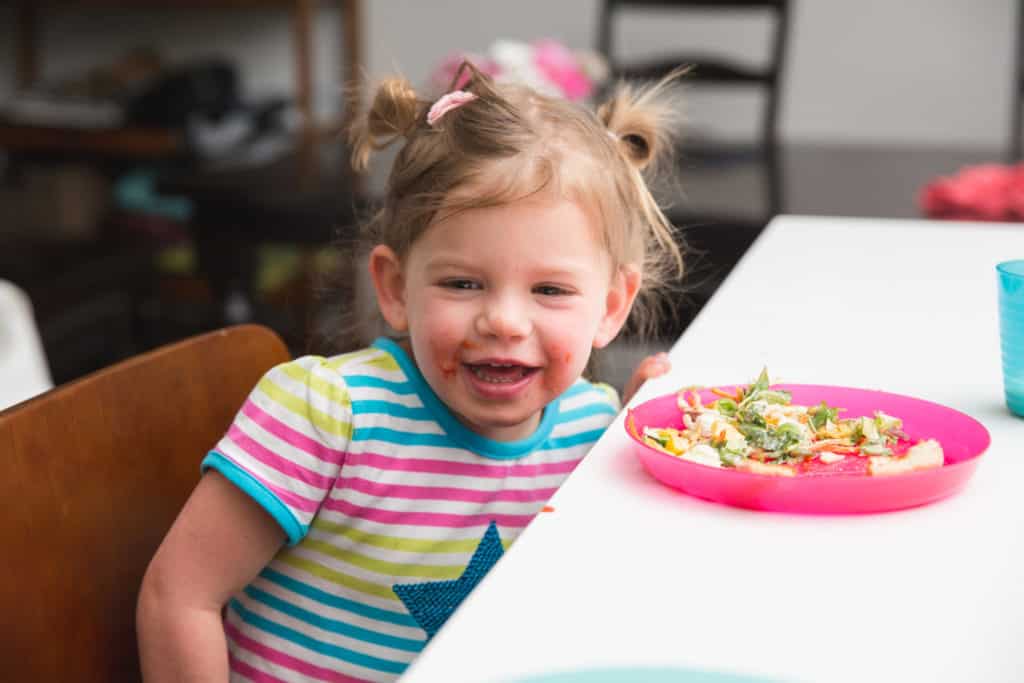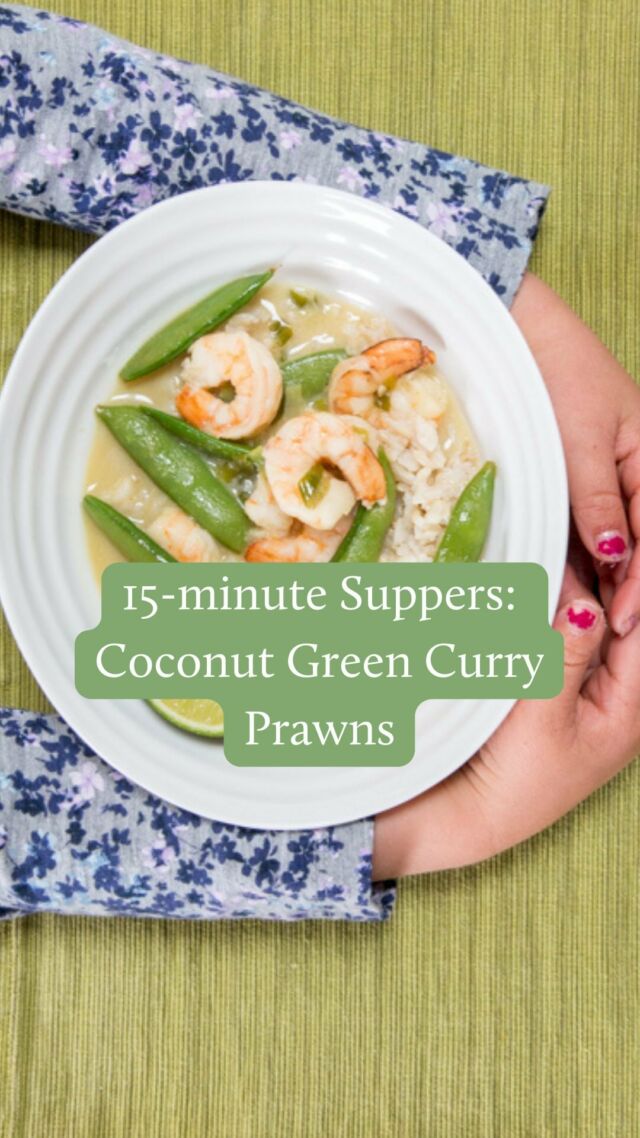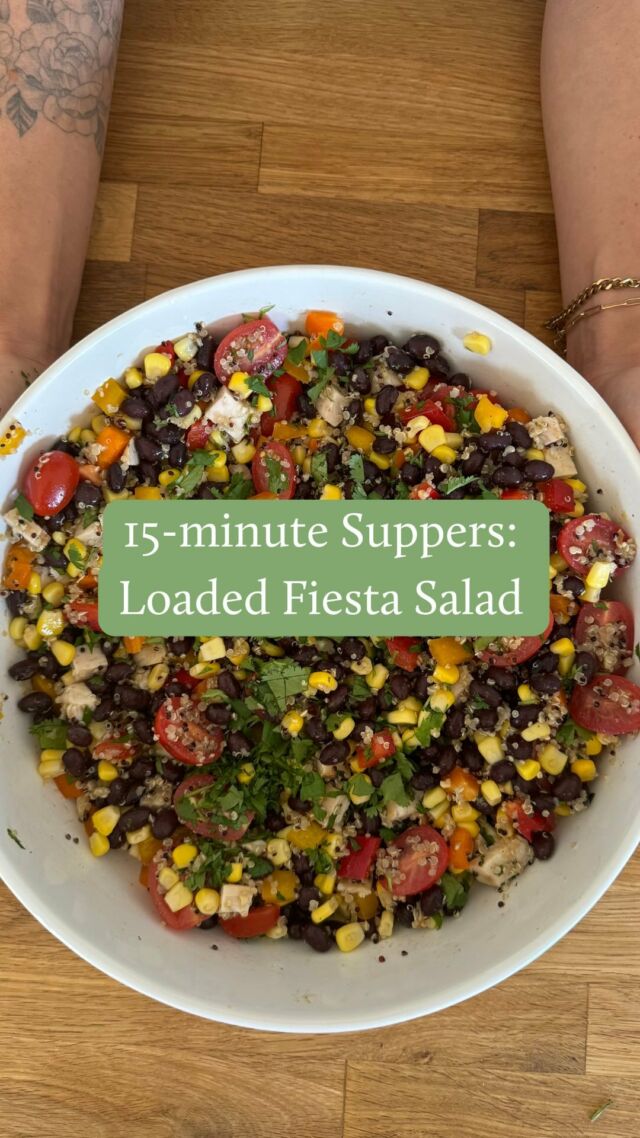I’ve always thought that praising my kids for positive behaviour, kindness, sharing, etc., has worked well to increase the chances of continued positive behaviour. However, after years of being a pediatric and child dietitian, I’ve realized that praising does more harm than good. Learn how praising your child may make picky eating worse.

I can literally feel the pride beaming from my oldest son’s face when I praise him for being extra nice to his sister or making his bed without being asked. But what I’m learning, is that although praise might work short-term, too much praise can backfire in the long run.
Rebecca Eanes, parenting expert over at Positive Parenting: Toddlers and Beyond and writer at Creative Child Magazine explains that doling out too much praise can create a “praise junkie”- a child who relies too much on his parent’s judgments of him rather than forming his own judgments. It can also cause a child to lose interest–they become motivated not to continue a positive behaviour, but instead to receive more praise.
When it comes to feeding kids–especially kids that tend to be “picky”–well-meaning parents might be tempted to offer praise when their child eats healthy, nutritious foods when they normally wouldn’t (or, for eating everything that they’ve been served). For example, I often over-hear parents say to their kids during or after a meal “great eating tonight! You finished everything on your plate!” or “good boy for eating your broccoli!”
Parents who praise their kids at the table are GREAT parents. They are using positive re-enforcement to encourage repeat behaviour–we all want our kids to eat healthy, right?! Unfortunately though, praise at the table can send the wrong message.
Healthy dinnertime dialogue is crucial for nurturing a healthy relationship with food long-term. However, mealtime praise can be mis-interpreted by kids, can discourage mindful eating behaviours and can actually enable further picky eating behaviours. Amy McCready, founder of the popular parenting blog Positive Parenting Solutions agrees and says “I encourage parents to avoid the “Wow, you were a good eater!” comments – as it places value judgements on what and how much they eat.”
What’s more, is that offering praise at the table might shame a sibling who is struggling to try new foods. We don’t want to shame–we want to encourage. McCready mentions in her Huffington post article that “praise, like sugar, can be tricky — and sometimes it shows up even where we don’t intend. For instance, when we label or compare our kids, we’re praising them, or worse, belittling them, often without realizing it.”
If your child–perhaps a picky eater–starts making small strides towards healthier eating, it’s tempting to want to jump up and down and scream for joy. Instead, try to stay calm, contain your excitement and encourage your child’s adventurous eating rather than praising it.
There are two important steps to consider when doing this:

1) Notice it:
Simply noticing the strides that your child is taking at the dinner table can go a long way in encouraging repeat behaviour and a sense of accomplishment. Using phrases such as “I noticed that you ate your peas tonight” or “I see that you’re enjoying your chicken” will let your child know that you notice his efforts and will give him a sense of pride and encourage him to do it again.
Ariadne Brill, parenting expert over at Positive Parenting Connection explains in a post that praising kids (let’s say for eating a certain food or for eating a certain amount) by saying “great job for___” sends your child the message that you’re evaluating him (if it’s not a “good job”, it must be a “bad job”, right?). Instead, simply noticing that your child is doing something positive will empower him to continue to do it without always expecting praise.
Instead of saying “great job for eating all of your dinner”, which may translate into “eating more=good boy” (you can see how this may create unhealthy habits later on…), saying “I’ve been noticing that you’re not always asking for snacks right after dinnertime anymore–you must be making an effort to fill your tummy at dinnertime” will register as “I CAN eat enough at meals so that I’m not always hungry afterwards”.

2) Encourage rather than praise:
Encourage your child to continue being brave and exploring new foods (whether it’s tasting, licking, touching etc.), even if he’s making teeny tiny steps towards doing so. This will make him feel capable of going one step further in his exploration, without the pressure off actually swallowing a food right at the get-go. It gives him permission to gradually warm up to a food in a way that feels comfortable to him. This ultimately increases the chances of him accepting it later.
The difference between encouraging and praising is this:
When you encourage a child at the table, you are genuinely proud of him for taking a risk and trying a new food. You want to acknowledge his bravery and make him feel capable of doing it again. On the other hand, offering empty praise such as “great eating tonight” or “good boy for eating your vegetables” means that you want him to do it again tomorrow. Eanes explains that “real appreciation and encouragement are different from praise.” Rather than offering a “good job!” for eating a certain food or a certain amount, she suggests to genuinely acknowledge that the action was positive. This isn’t manipulation to get your child to do it again, but rather acknowledging it without conditions. We don’t want our kids to eat their greens to please us–we want them to actually learn to accept and enjoy them as part of a balanced diet (long term).
Nicole Schwarz, a parenting expert and blogger over at Imperfect Families, talks about the importance of thinking about your words as your child’s inner voice. “You want them to learn things about themselves and maybe even repeat these phrases even when you are not around” she says.
Try “that was brave of you for trying that red pepper strip–you must be proud of yourself”. This makes your child feel capable of doing it again and of being more adventuresome in general when it comes to food.
When it comes to quantity of food (let’s say, your child doesn’t often eat much at dinner, but you’re noticing that lately she has been eating more), encourage mindful eating by asking the question “how does your tummy feel?”, and encourage her to eat until she feels comfortably full.

Did you know that we provide one on one nutrition counselling services for families? If this is something you’d like to learn more about, check out our The Centre For Family Nutrition page.
Need more tips on picky eating and kids nutrition? Follow me on Facebook, where I post free information daily!






Comments
KetoTrim Pills says
I just now wanted to thank you yet again for your amazing site you have designed here.
It can be full of ideas for those who are genuinely interested in this subject, primarily this
very post. You’re really all absolutely sweet along with
thoughtful of others in addition to the fact
that reading your blog posts is an excellent delight if you ask me.
And such a generous surprise! Tom and I will certainly have enjoyment making use
of your ideas in what we need to do in the near future.
Our collection of ideas is a distance long which means
that your tips will be put to excellent use.
Sarah Remmer says
Thanks so much! I appreciate your kind comments 🙂